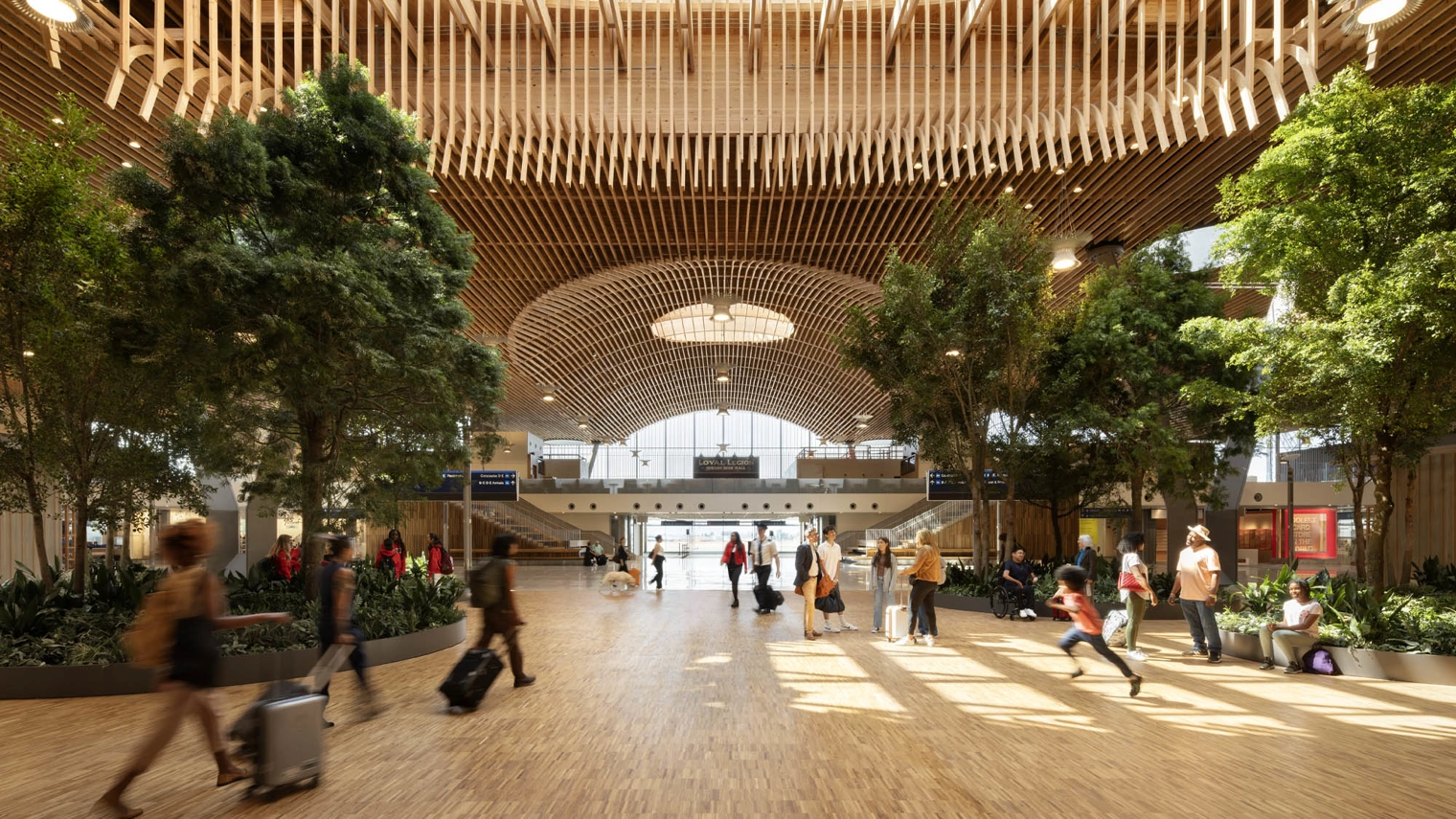Social Construction: Understanding Construction in a Human Context

Social Construction: Understanding Construction in a Human Context
As lean construction has evolved as a practice, efforts have been made to develop theoretical foundations for understanding it. These efforts have been informed by our understanding of lean manufacturing, a source of many of the seminal ideas for lean construction. One key insight has been the shift from the understanding of a process as the transformation of materials from inputs to outputs to the view of a process as a flow of materials through a sequence of steps or operations. Another has been the recognition that value must be considered from the customer perspective. More recently, several authors have proposed more general contexts for understanding the entire construction process. These proposals have included observing the essential role of language in the conduct of projects, recognizing the limitations of a purely economic context, and adopting a more comprehensive flow perspective. In this paper, we propose a framework for situating the construction process in the world of human concerns.
We show that consideration of the human being as actor within a world of concerns provides a necessary context and foundational explanation for all subsequent discussions of process, flow, value, and commitment. We also suggest a new perspective for understanding and addressing the issue of risk.
Social Construction: Understanding Construction in a Human Context
As lean construction has evolved as a practice, efforts have been made to develop theoretical foundations for understanding it. These efforts have been informed by our understanding of lean manufacturing, a source of many of the seminal ideas for lean construction. One key insight has been the shift from the understanding of a process as the transformation of materials from inputs to outputs to the view of a process as a flow of materials through a sequence of steps or operations. Another has been the recognition that value must be considered from the customer perspective. More recently, several authors have proposed more general contexts for understanding the entire construction process. These proposals have included observing the essential role of language in the conduct of projects, recognizing the limitations of a purely economic context, and adopting a more comprehensive flow perspective. In this paper, we propose a framework for situating the construction process in the world of human concerns.
We show that consideration of the human being as actor within a world of concerns provides a necessary context and foundational explanation for all subsequent discussions of process, flow, value, and commitment. We also suggest a new perspective for understanding and addressing the issue of risk.
Social Construction: Understanding Construction in a Human Context
As lean construction has evolved as a practice, efforts have been made to develop theoretical foundations for understanding it. These efforts have been informed by our understanding of lean manufacturing, a source of many of the seminal ideas for lean construction. One key insight has been the shift from the understanding of a process as the transformation of materials from inputs to outputs to the view of a process as a flow of materials through a sequence of steps or operations. Another has been the recognition that value must be considered from the customer perspective. More recently, several authors have proposed more general contexts for understanding the entire construction process. These proposals have included observing the essential role of language in the conduct of projects, recognizing the limitations of a purely economic context, and adopting a more comprehensive flow perspective. In this paper, we propose a framework for situating the construction process in the world of human concerns.
We show that consideration of the human being as actor within a world of concerns provides a necessary context and foundational explanation for all subsequent discussions of process, flow, value, and commitment. We also suggest a new perspective for understanding and addressing the issue of risk.
Social Construction: Understanding Construction in a Human Context
As lean construction has evolved as a practice, efforts have been made to develop theoretical foundations for understanding it. These efforts have been informed by our understanding of lean manufacturing, a source of many of the seminal ideas for lean construction. One key insight has been the shift from the understanding of a process as the transformation of materials from inputs to outputs to the view of a process as a flow of materials through a sequence of steps or operations. Another has been the recognition that value must be considered from the customer perspective. More recently, several authors have proposed more general contexts for understanding the entire construction process. These proposals have included observing the essential role of language in the conduct of projects, recognizing the limitations of a purely economic context, and adopting a more comprehensive flow perspective. In this paper, we propose a framework for situating the construction process in the world of human concerns.
We show that consideration of the human being as actor within a world of concerns provides a necessary context and foundational explanation for all subsequent discussions of process, flow, value, and commitment. We also suggest a new perspective for understanding and addressing the issue of risk.
Social Construction: Understanding Construction in a Human Context
As lean construction has evolved, efforts have been made to develop theoretical foundations for understanding it.
Social Construction: Understanding Construction in a Human Context
As lean construction has evolved as a practice, efforts have been made to develop theoretical foundations for understanding it. These efforts have been informed by our understanding of lean manufacturing, a source of many of the seminal ideas for lean construction. One key insight has been the shift from the understanding of a process as the transformation of materials from inputs to outputs to the view of a process as a flow of materials through a sequence of steps or operations. Another has been the recognition that value must be considered from the customer perspective. More recently, several authors have proposed more general contexts for understanding the entire construction process. These proposals have included observing the essential role of language in the conduct of projects, recognizing the limitations of a purely economic context, and adopting a more comprehensive flow perspective. In this paper, we propose a framework for situating the construction process in the world of human concerns.
We show that consideration of the human being as actor within a world of concerns provides a necessary context and foundational explanation for all subsequent discussions of process, flow, value, and commitment. We also suggest a new perspective for understanding and addressing the issue of risk.
Social Construction: Understanding Construction in a Human Context
As lean construction has evolved, efforts have been made to develop theoretical foundations for understanding it.
Social Construction: Understanding Construction in a Human Context
As lean construction has evolved as a practice, efforts have been made to develop theoretical foundations for understanding it. These efforts have been informed by our understanding of lean manufacturing, a source of many of the seminal ideas for lean construction. One key insight has been the shift from the understanding of a process as the transformation of materials from inputs to outputs to the view of a process as a flow of materials through a sequence of steps or operations. Another has been the recognition that value must be considered from the customer perspective. More recently, several authors have proposed more general contexts for understanding the entire construction process. These proposals have included observing the essential role of language in the conduct of projects, recognizing the limitations of a purely economic context, and adopting a more comprehensive flow perspective. In this paper, we propose a framework for situating the construction process in the world of human concerns.
We show that consideration of the human being as actor within a world of concerns provides a necessary context and foundational explanation for all subsequent discussions of process, flow, value, and commitment. We also suggest a new perspective for understanding and addressing the issue of risk.
Social Construction: Understanding Construction in a Human Context
As lean construction has evolved as a practice, efforts have been made to develop theoretical foundations for understanding it. These efforts have been informed by our understanding of lean manufacturing, a source of many of the seminal ideas for lean construction. One key insight has been the shift from the understanding of a process as the transformation of materials from inputs to outputs to the view of a process as a flow of materials through a sequence of steps or operations. Another has been the recognition that value must be considered from the customer perspective. More recently, several authors have proposed more general contexts for understanding the entire construction process. These proposals have included observing the essential role of language in the conduct of projects, recognizing the limitations of a purely economic context, and adopting a more comprehensive flow perspective. In this paper, we propose a framework for situating the construction process in the world of human concerns.
We show that consideration of the human being as actor within a world of concerns provides a necessary context and foundational explanation for all subsequent discussions of process, flow, value, and commitment. We also suggest a new perspective for understanding and addressing the issue of risk.
Social Construction: Understanding Construction in a Human Context
As lean construction has evolved as a practice, efforts have been made to develop theoretical foundations for understanding it. These efforts have been informed by our understanding of lean manufacturing, a source of many of the seminal ideas for lean construction. One key insight has been the shift from the understanding of a process as the transformation of materials from inputs to outputs to the view of a process as a flow of materials through a sequence of steps or operations. Another has been the recognition that value must be considered from the customer perspective. More recently, several authors have proposed more general contexts for understanding the entire construction process. These proposals have included observing the essential role of language in the conduct of projects, recognizing the limitations of a purely economic context, and adopting a more comprehensive flow perspective. In this paper, we propose a framework for situating the construction process in the world of human concerns.
We show that consideration of the human being as actor within a world of concerns provides a necessary context and foundational explanation for all subsequent discussions of process, flow, value, and commitment. We also suggest a new perspective for understanding and addressing the issue of risk.
Social Construction: Understanding Construction in a Human Context
As lean construction has evolved as a practice, efforts have been made to develop theoretical foundations for understanding it. These efforts have been informed by our understanding of lean manufacturing, a source of many of the seminal ideas for lean construction. One key insight has been the shift from the understanding of a process as the transformation of materials from inputs to outputs to the view of a process as a flow of materials through a sequence of steps or operations. Another has been the recognition that value must be considered from the customer perspective. More recently, several authors have proposed more general contexts for understanding the entire construction process. These proposals have included observing the essential role of language in the conduct of projects, recognizing the limitations of a purely economic context, and adopting a more comprehensive flow perspective. In this paper, we propose a framework for situating the construction process in the world of human concerns.
We show that consideration of the human being as actor within a world of concerns provides a necessary context and foundational explanation for all subsequent discussions of process, flow, value, and commitment. We also suggest a new perspective for understanding and addressing the issue of risk.













